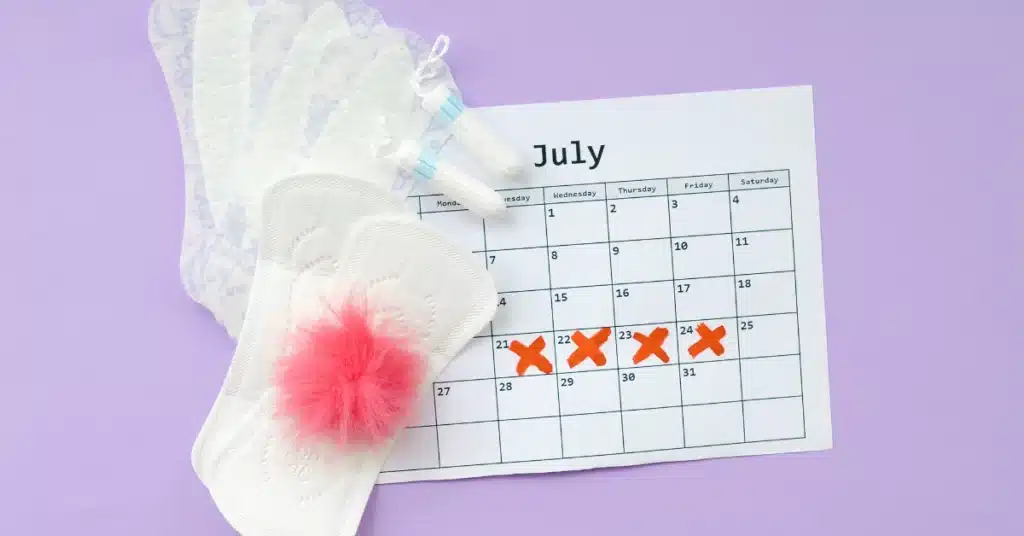Navigating Birth Control Mood Swings
The decision to use birth control is deeply personal and often rooted in various factors such as reproductive choices, health considerations, and lifestyle preferences.
One common concern that individuals may have when contemplating birth control is its potential impact on mood.
While some individuals report experiencing changes in mood when using certain contraceptive methods, others may not notice any significant difference.
In this article, we’ll explore birth control mood swings to help people understand better and make informed choices about their reproductive health.
Does birth control make you moody
The question of whether birth control makes you moody is one that echoes in the minds of many.
While individual responses vary, it’s crucial to understand the nuances of hormonal changes introduced by contraceptives.
Birth control pills, patches, and injections, known as hormonal contraceptives, function by changing the body’s natural hormone balance.
They primarily contain synthetic versions of Estrogen and Progestin, mimicking the hormones produced by the ovaries.
Studies suggest that hormonal fluctuations can influence mood, with some individuals reporting changes in mood patterns.
It’s important to note that not everyone will experience mood swings due to birth control, and the impact can vary based on factors like hormonal sensitivity, overall health, and pre-existing mood conditions.
How does birth control affect your mood

Understanding how birth control affects mood requires delving into the hormonal dynamics involved.
Hormonal contraceptives primarily work by suppressing ovulation, thickening cervical mucus to impede sperm movement, and altering the uterine lining to prevent embryo implantation.
Estrogen and Progesterone levels
Contraceptive methods incorporating both Estrogen and Progesterone can affect mood by modulating neurotransmitters such as Serotonin and Dopamine.
These neurotransmitters are pivotal in mood regulation, and any disruption in their balance can result in emotional fluctuations.
Progesterone-only methods
Progesterone-only methods, such as mini-pills and hormonal IUDs, primarily affect mood by their impact on Progesterone levels.
While Progesterone is generally recognized for its calming properties, there are instances where it might result in heightened irritability or mood swings.
Every individual’s hormonal sensitivity varies.
Some may find that hormonal contraception has minimal impact on their mood, while others may experience noticeable changes.
It’s crucial to communicate openly with healthcare providers about any concerns regarding mood changes while on birth control.
They can offer personalized guidance and, if necessary, recommend alternative methods that may better suit individual needs
Does birth control help with mood swings
While some individuals may experience mood changes as a side effect of hormonal birth control, it’s essential to note that these changes are not universal.
In fact, for some individuals, hormonal birth control can have positive effects on mood stability.
Here are considerations to keep in mind:
Menstrual cycle regulation

Hormonal contraceptives are often prescribed to regulate the menstrual cycle.
For individuals with irregular or painful periods, the normalization of hormonal fluctuations can contribute to improved mood and overall well-being
Reduced PMS symptoms
Birth control pills, especially those with a combination of Estrogen and Progestin, are known to alleviate symptoms of Premenstrual Syndrome (PMS).
By mitigating physical discomfort and mood swings associated with PMS, hormonal birth control can enhance emotional stability
Treatment for hormone-related disorders
Some individuals experience hormone-related disorders, such as Polycystic Ovary Syndrome (PCOS), which can contribute to mood swings.
Hormonal contraceptives may be prescribed to manage these conditions, addressing both reproductive health and mood concerns
Personalized solutions
The impact of birth control on mood is highly individual.
If you feel mood swings or emotional changes with your current birth control, your healthcare provider can try different methods or adjust hormone levels to find one that suits you better.
Conclusion
The decision to use birth control is deeply personal, intertwining reproductive choices, health considerations, and lifestyle preferences.
The question of whether birth control induces mood swings is intricate and varies between individuals.
While hormonal contraceptives can influence mood due to synthetic hormones like Estrogen and Progestin, responses are diverse.
Factors like hormonal sensitivity and pre-existing conditions play roles.
Some may find mood improvements, citing regulated menstrual cycles or alleviated PMS symptoms.
Understanding these dynamics empowers informed decisions, emphasizing open communication with healthcare providers for personalized guidance.
Frequently Asked Questions
Can birth control cause depression?
While some individuals may experience mood changes on birth control, it’s essential to differentiate between typical mood swings and clinical depression. Address any worries or questions with a healthcare professional to identify the most suitable steps forward.
Are there non-hormonal birth control methods to avoid mood changes?
Yes, non-hormonal birth control methods, such as barrier methods (condoms, diaphragms) and copper IUDs, do not introduce synthetic hormones and may be suitable for individuals seeking contraceptive options without hormonal effects on mood.
How long does it take for birth control to affect mood?
The timeline for experiencing mood changes on birth control varies among individuals. Some may notice changes within the first few weeks, while others may take longer. It’s important to monitor and communicate any mood changes with healthcare professionals.
Can birth control help with mood swings associated with the menstrual cycle?
Yes, hormonal birth control methods can help alleviate mood swings associated with the menstrual cycle by providing a more consistent hormonal environment throughout the month. This stabilization may contribute to a reduction in cyclical mood changes.
WowRx uses only high-quality sources while writing our articles. Please read our content information policy to know more about how we keep our content reliable and trustworthy.






